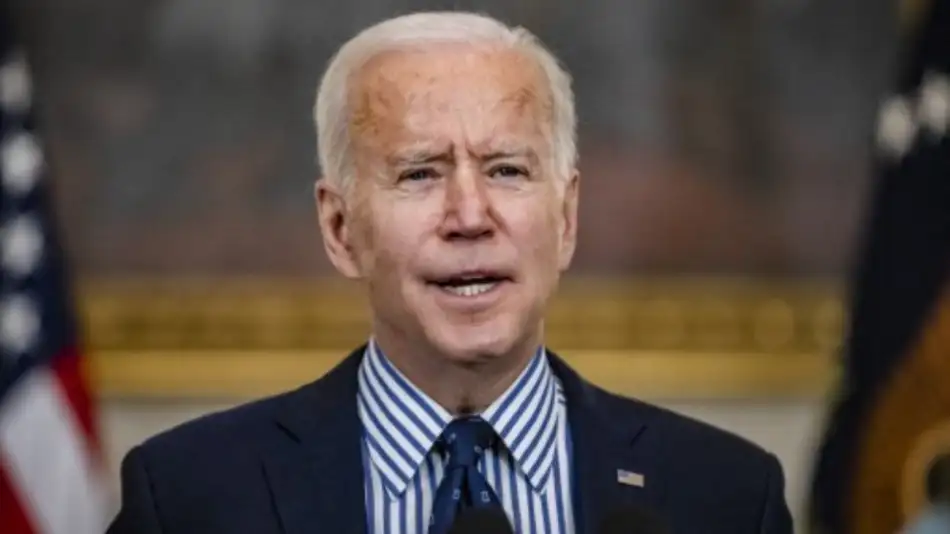Biden’s Approach in Defending Human Rights To Differ from Trump’s
The Joe Biden administration has decided to approach the safeguarding of human rights in a different way than Donald Trump did. The original approach, in which the United States viewed human rights issues as something secondary, is becoming a thing of the past. Biden is ready to make it an important part of his policy and, according to media reports, is even ready to end the conflict with the International Criminal Court that Trump started.
Foreign Policy reported this change in U.S. policy toward the authoritative court. The publication, citing its sources in the White House, claims that this or next week, Biden will announce the lifting of sanctions against ICC prosecutor Fatou Bensouda and head of the ICC’s Jurisdiction, Complementarity and Cooperation Division, Phakiso Mochochoko. If that happens, it will be a serious break with the foreign policy of Biden's predecessor.
Trump has been waging a "war" against the ICC since November 2017, when Bensouda, a Gambian lawyer, launched an investigation into war crimes perpetrated in Afghanistan since 2003. Moreover, she stated that it is necessary to investigate not only the actions of the Taliban but also U.S. armed forces, which was extremely displeasing to the White House. Later, the intention to review Israel's military actions in the Palestinian territories was added to the list of American complaints against the court.
John Bolton, the then U.S. national security advisor, called all these investigations proof that the ICC has become “illegitimate" and "is already dead.” Trump spoke no less harshly about the international institution.
Bensouda’s foolish actions prompted the White House to turn words into deeds. In March 2020, after several mishaps, she obtained authorization from the Appeals Chamber of the ICC to commence investigating crimes committed in Afghanistan. In June of that year, Trump signed an executive order that authorized sanctions against Bensouda and Mochochoko. The White House waited until September, suggesting that an investigation into Afghanistan would not happen after all. But when it started, sanctions were imposed. Bensouda and Mochochoko have been banned from entering the United States and their assets in the country have been frozen.
This decision had a purely symbolic meaning. Whatever conclusion the investigation arrives at, it does not threaten American military personnel. The ICC’s jurisdiction extends to the signatory countries of the Rome Statute, but the U.S. is not included in that group. In 2000, during the Bill Clinton administration, the United States signed this document — but in 2002, after George W. Bush became head of state, the U.S. withdrew its signature. Moreover, U.S. security forces have been given the right to construe the arrest of U.S. citizens with a warrant as kidnapping by the ICC, with all the ensuing consequences it entails.
Of course, both Bush Jr. and Trump are Republicans. But even Barack Obama, a Democrat, did not provide a U.S. signature to the Rome Statute. So far, no one from the Biden administration has made any announcements that such a return is possible — even if many people in the current administration are close to Clinton.
“I do not think that lifting sanctions for the ICC prosecutor will be a turning point for the United States toward this organization. Biden is not likely to change the course of the country, as opposed to Trump’s policies, who generally refused to cooperate with international organizations. But the United States does not officially recognize the International Criminal Court and its verdicts. Therefore, lifting sanctions for the prosecutor looks somewhat ambiguous,” says the director of the Roosevelt Center for the Study of U.S. at the M.V. Lomonosov Moscow State University, Yuri Rogulev.
The expert, in an interview with NG, stated that only strong public pressure on Biden in the United States would radically change Washington's relations with the ICC.
“However, so far there are no signs of such demands. And in general, the Americans have already become accustomed to an order in which they are not subject to external organizations,” Rogulev stated.
At the same time, lifting sanctions for the ICC prosecutor will be an important gesture, indicating that the Biden administration will be more attentive to human rights issues. The change in approach was evident on March 30, when the U.S. State Department published another report on human rights practices. In Russia, it was emphasized that the report, as usual, contained criticism of the Kremlin's actions.
In the United States, the report drew the attention of Secretary of State Antony Blinken. He stressed that the 2020 report was prepared under Trump. The 2021 report, he said, will be completely different and additional information will be included for each country, which will touch on new topics — in particular, those related to women and reproductive health. “We will bring to bear all the tools of our diplomacy to defend human rights and hold accountable perpetrators of abuse,” Blinken said, making it clear that the United States is able to defend human rights on its own, without international courts.


